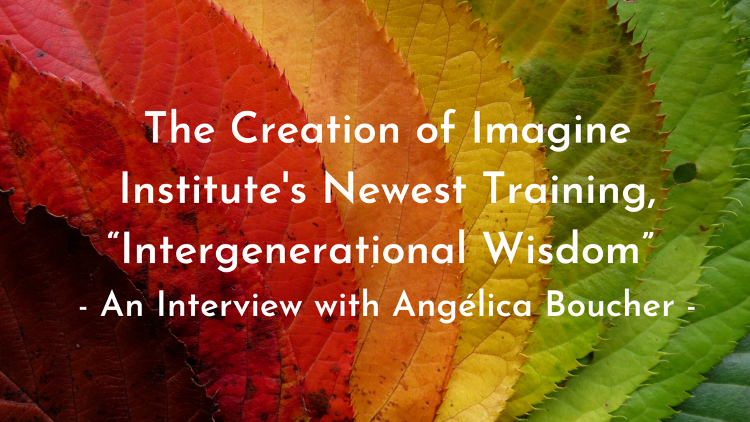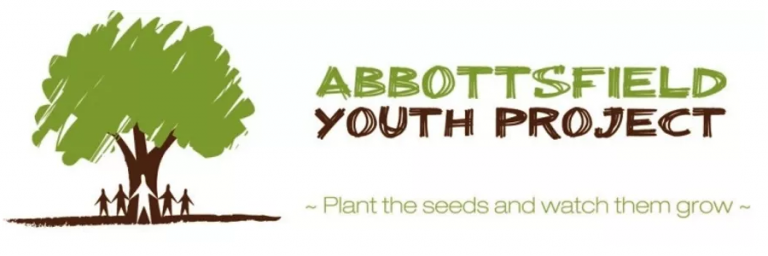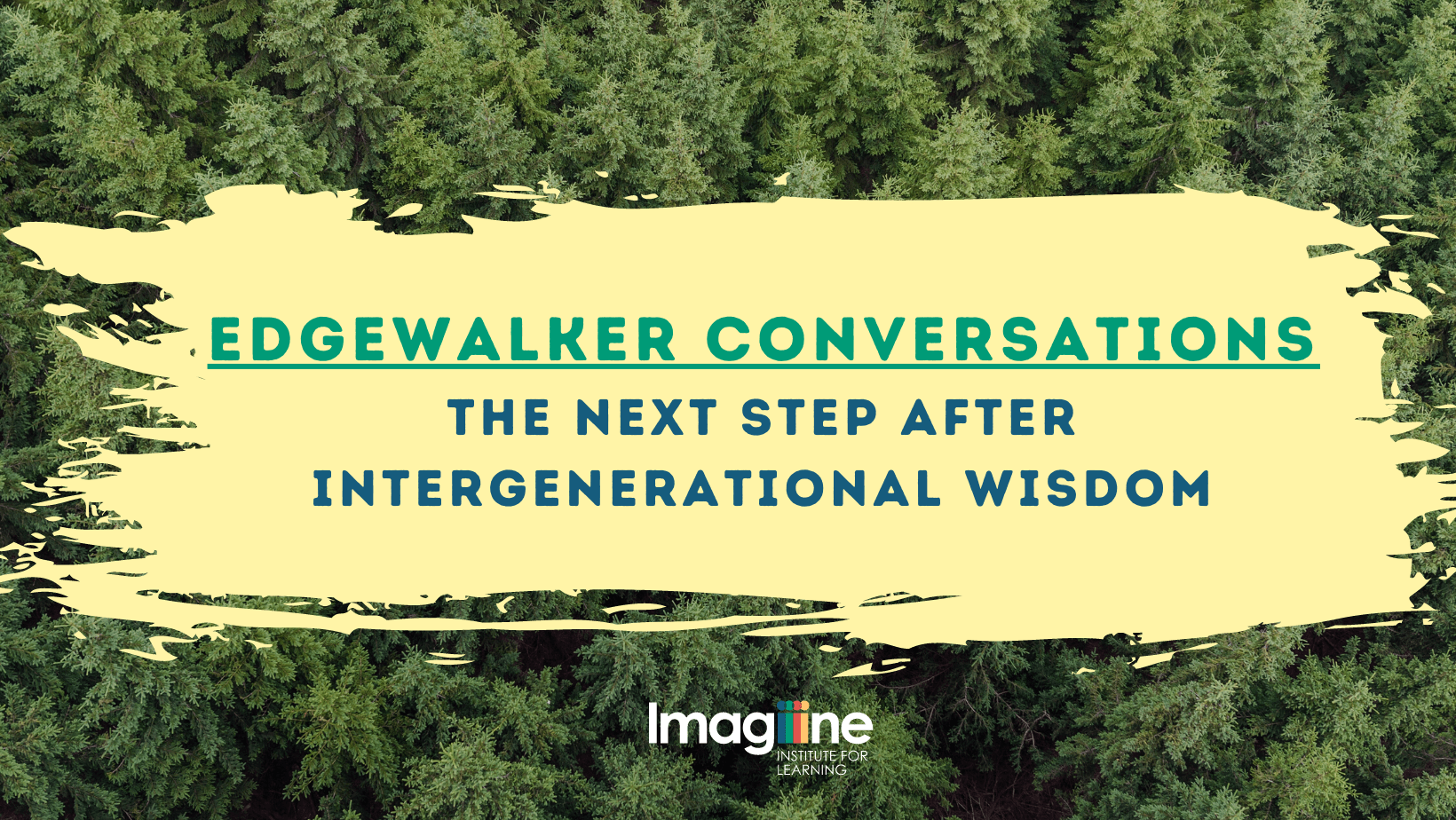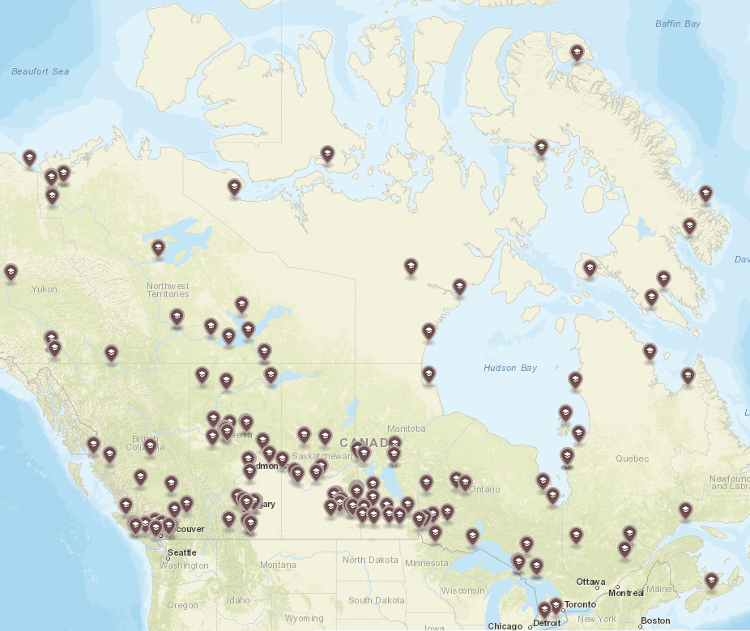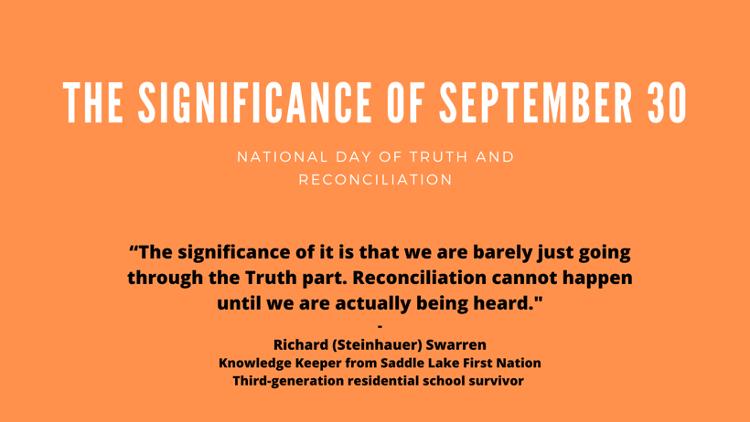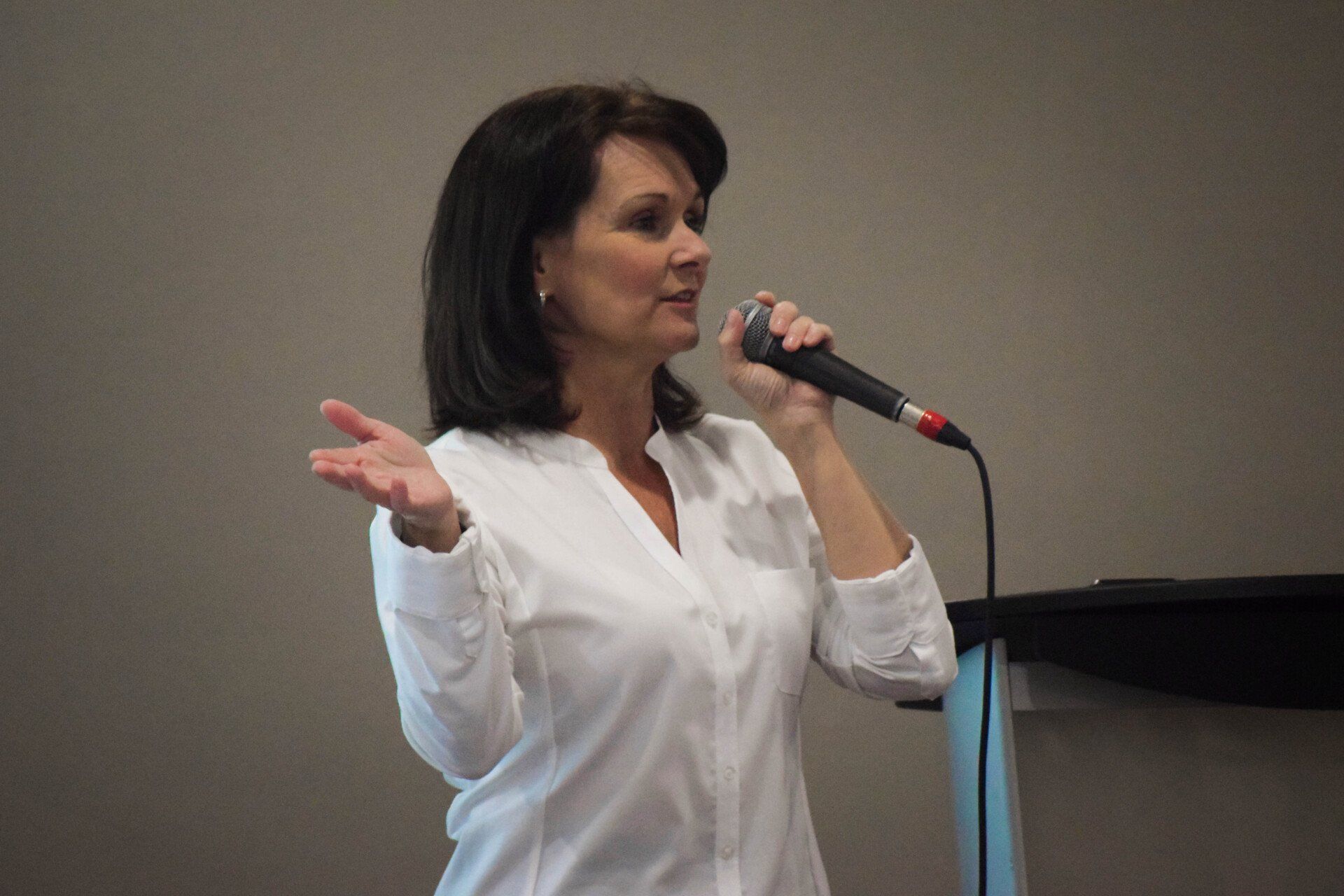I am a Reflective Practitioner
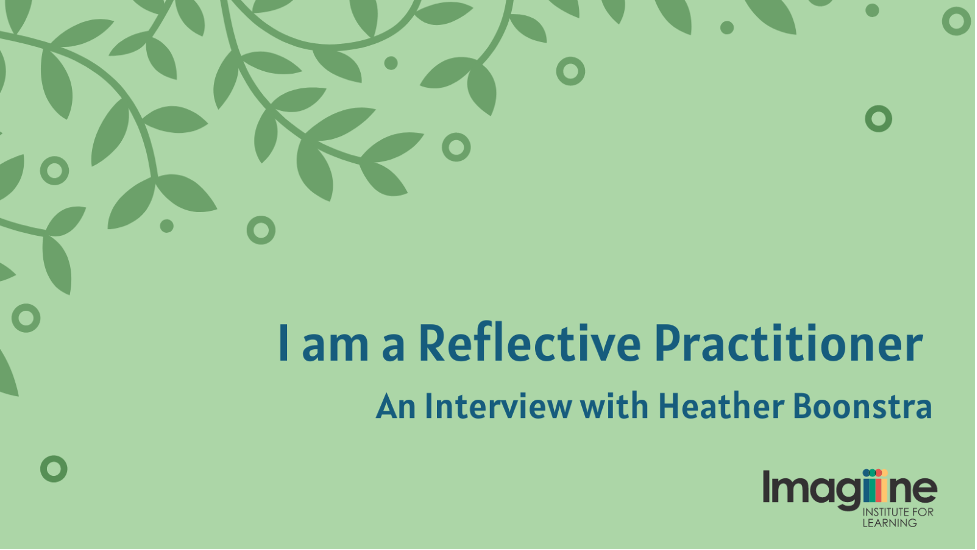
Heather Boonstra has recently joined the Imagine Team as our Reflective Practitioner. You may be wondering what exactly a Reflective Practitioner is and to be honest, our team is continually learning as we move forward. This is a truly unique position, and to our knowledge, we are the first non-profit in our sector who has fully integrated this role into our organization.
To better explain just what a Reflective Practitioner does, check out this interview with Heather.
Why is reflective practice so valuable for individuals and organizations?
I just want to start off by saying that I think many people are already engaging in reflective practice, they just may not call it that. I remember the first time I heard about reflective practice training and asked my supervisor if I could attend. She told me that I didn’t need to go because I was already doing it – but what exactly was I doing? I didn’t know!
It turns out that what I was doing without realizing that it was good practice, was asking questions of myself, my coworkers and of the families we were supporting; questions that asked us to dig a little deeper into the impact that our words, actions, behaviours and decisions were having on ourselves and those around us. Conversations like this can only take place in an environment of trust because they require a certain level of vulnerability. I believe that intentional, mindful and consistent reflective practice is critical for individuals and organizations who are not merely curious about consequences and impact, but who are committed to adapting what they say and do based on what they learn.
What is a Reflective Practitioner? What do you do on a day-to-day basis?
As a Reflective Practitioner, I get to bring intentionality and consistency to the questions Imagine asks of themselves and their stakeholders (for example, their participants, funders, community members). I have the honour of watching and listening to this incredibly skilled and passionate team as they create, deliver, reflect, iterate, and then do it all over again based on what they learn. I support Imagine in their collecting and reporting of meaningful, purposeful, culturally responsive data, while at the same time, reminding them that their work also has an impact on their own hearts and minds that they need to pay attention to.
Day to day, you can find me working on data collection spreadsheets, developing evaluation questions and frameworks, reading articles on promising evaluation practices and methods, having conversations with Imagine team members (my favourite thing about my job!) and asking reflective questions of myself to help me see what we might be missing, and what else might be important for Imagine to understand.
Where did the idea for this position come from? What is the overall vision for the position?
The Reflective Practitioner role was born out of Line (Imagine’s Executive Director) and her team placing a high value on evaluation being a naturally occurring part of what they do every day, rather than it being a cumbersome task that they must do.
At an Imagine team meeting one day, I expressed that I was having some discomfort with being referred to as “the evaluator” because for this specific work I was doing, it just didn’t sit right with me. I was concerned that people might feel like I was doing something to them, rather than with them, which is the opposite of Imagine’s practice. After some discussion (a very “reflective practice-y” discussion I might add), Line exclaimed, “I think you are our Reflective Practitioner!” This position is brand new, and we are figuring it out as we test it, talk about it, change it and test it again, which makes it beautifully aligned with Imagine’s iterative process philosophy and values of integrity and responsiveness…and that is the overall vision. Robust, trauma-informed, culturally responsive evaluation and reporting, within a culture of reflective inquiry and continuous improvement.
What experiences and wisdom do you bring to this role?
Ok – I cannot answer this question without first expressing my heartfelt gratitude. I have been so very fortunate over the years to have been surrounded by the cream of the crop work families, colleagues and community champions! They have had my back, supported and encouraged my dreaming, put up with my mess-ups (there have been many), and have “challenged the process” (Kouzes & Pozner) when I needed to be reeled in from the clouds and needed reminders to slow down. I have had 30+ years' worth of individuals, families, children, youth and seniors allowing me to share in their lives and become a small part of their stories. So many of them occupy my thoughts even today because the lessons they taught me are what have equipped me to do what I do now.
If I think specifically about my evaluation experiences, a pivotal point for me was when I attended a workshop almost 25 years ago. The presenter, who I am fortunate enough to be able to now call a friend, taught me that evaluation is a form of storytelling. That was a huge shift in my thinking, and one that I needed, as my experience with evaluation to that point had been that evaluation was only about outputs and that there was no room for stories of impact. I thought that that was just the way evaluation was and that I would never enjoy it, because it only told part of the story. I am so glad I was wrong!
How do you think other organizations could incorporate aspects of this position into the work they do?
I think that the first and most important step to incorporating aspects of this position into an organization’s practice would be to slow right down. This requires consistent intentionality. You will never be able to check this off of your To Do List and call it complete. To slow down and pause, is to be able to notice. To consider. To reflect. To ask questions and look at things from different perspectives. It will always be important to incorporate slowing down into your organization’s culture and to be able to give gentle reminders to one another when the busy-ness of your lives puts you on the hamster wheel!
That, coupled with participating in reflective practice and evaluation learning opportunities, and you are well on your way!
Please feel welcome to connect with me any time at heather@imagineinstitute.ca with your thoughts or questions!
